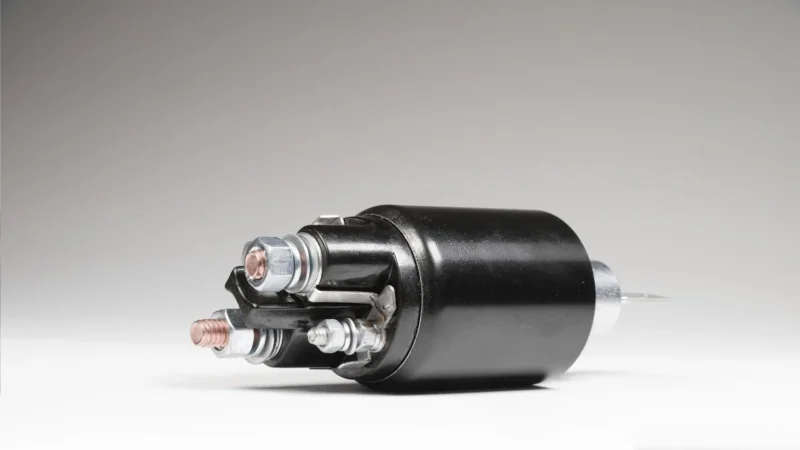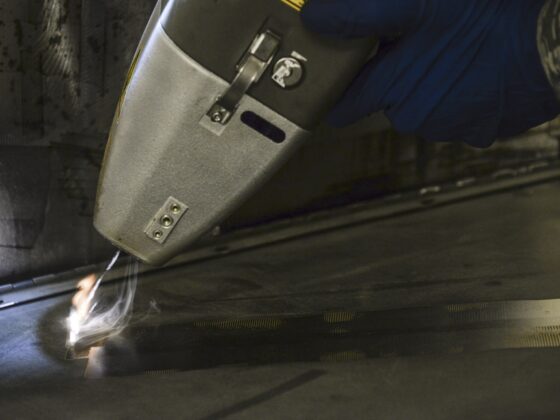The starter motor is an essential component of any engine ignition system. Without it, the engine would not be able to start and run correctly.
This small but powerful motor powers up the engine when needed with enough force for it to begin running. Its purpose is to provide a spark that ignites fuel within the combustion chamber, thus starting up the vehicle.
The starter motor can also help maintain smooth operation in difficult conditions such as cold weather or high altitude areas where engines require more power for startup than usual. With its ability to generate energy quickly and efficiently, this small but mighty component plays a crucial role in getting drivers safely from point A to point B.
Functions of the Starter Motor
The starter motor plays a crucial role in engine ignition. It is responsible for turning the crankshaft, which then allows fuel to be pumped into the cylinder and spark plugs to ignite it.
The starter motor also monitors engine speed and keeps it running at an optimal level. Additionally, when the battery runs low, it triggers an alarm that signals for more power or energy from another source such as an alternator or generator.
Finally, the starter motor helps maintain proper timing between various cylinders so that all of them fire at once during each combustion cycle.
Impact on Engine Ignition Performance

The starter motor plays an integral role in engine ignition, and its impact on performance cannot be underestimated. From the moment you turn the key to the instant your vehicle can rev up and move, a lot of factors come into play – but none more important than that of your starter motor.
Without it, you may find yourself stuck at the side of the road with no means of getting going again. A healthy starter motor will ensure reliable operation for each time you attempt to start your car; it helps get crucial components running such as the fuel pump and alternator while also allowing for smooth engagement with the flywheel or flexplate without any issues.
When all these parts are working together properly, this can have a positive effect on overall ignition performance by providing quick starts along with improved fuel economy due to lower emissions. On the other hand, if there’s something wrong with your starter motor then this could result in decreased power from misfiring cylinders which can lead to poor acceleration when driving as well as slower response times when trying to take off.
A faulty unit won’t only cause damage inside the engine but could also put extra strain on other components like batteries or cables resulting in costly repairs further down the line. For this reason, it’s essential that youre are aware of how important a functioning starter motor is for optimal engine ignition performance – something that should not be overlooked given its vital contribution towards a successful journey every time you set off!
Troubleshooting Common Issues with Starter Motors
The starter motor plays an essential role in engine ignition. Without it, the engine won’t start.
Unfortunately, it is not uncommon for starter motors to encounter issues from time to time. Thankfully, many of these problems can be easily diagnosed and remedied by a car owner or mechanic.
Common symptoms of trouble with a starter motor include difficulty engaging, weak engagement, or no engagement at all when attempting to turn the vehicle on as well as grinding noises coming from the motor itself. If experiencing any of these warning signs while trying to start your vehicle, here are some possible solutions: First and foremost check that your battery is fully charged and working correctly as this could be causing power supply issues leading to weak performance in the starter motor.
It may also be necessary to replace corroded cables connected between the battery and starter if corrosion is impeding the electrical flow necessary for the proper functioning of the motor. Additionally, if you find yourself having frequent starting difficulties it may indicate more serious wear-and-tear on parts such as worn brushes within the assembly which will require replacement by an auto technician or mechanic for normal operation to resume again.
When dealing with common issues surrounding a faulty starter motor being aware of potential causes and potential solutions can save both time and money when seeking professional help or attempting repairs independently under supervision depending on experience level with automotive work.
Conclusion

The Starter Motor is an essential component of engine ignition. It provides the initial spark needed to get the combustion process running, and it can be found in almost all automobiles.
The starter motor helps keep engines running smoothly and efficiently by providing a reliable source of power that is easy to maintain. By investing in quality parts and regularly servicing your starter motor, you can ensure that your engine will start reliably every time you need it to.


